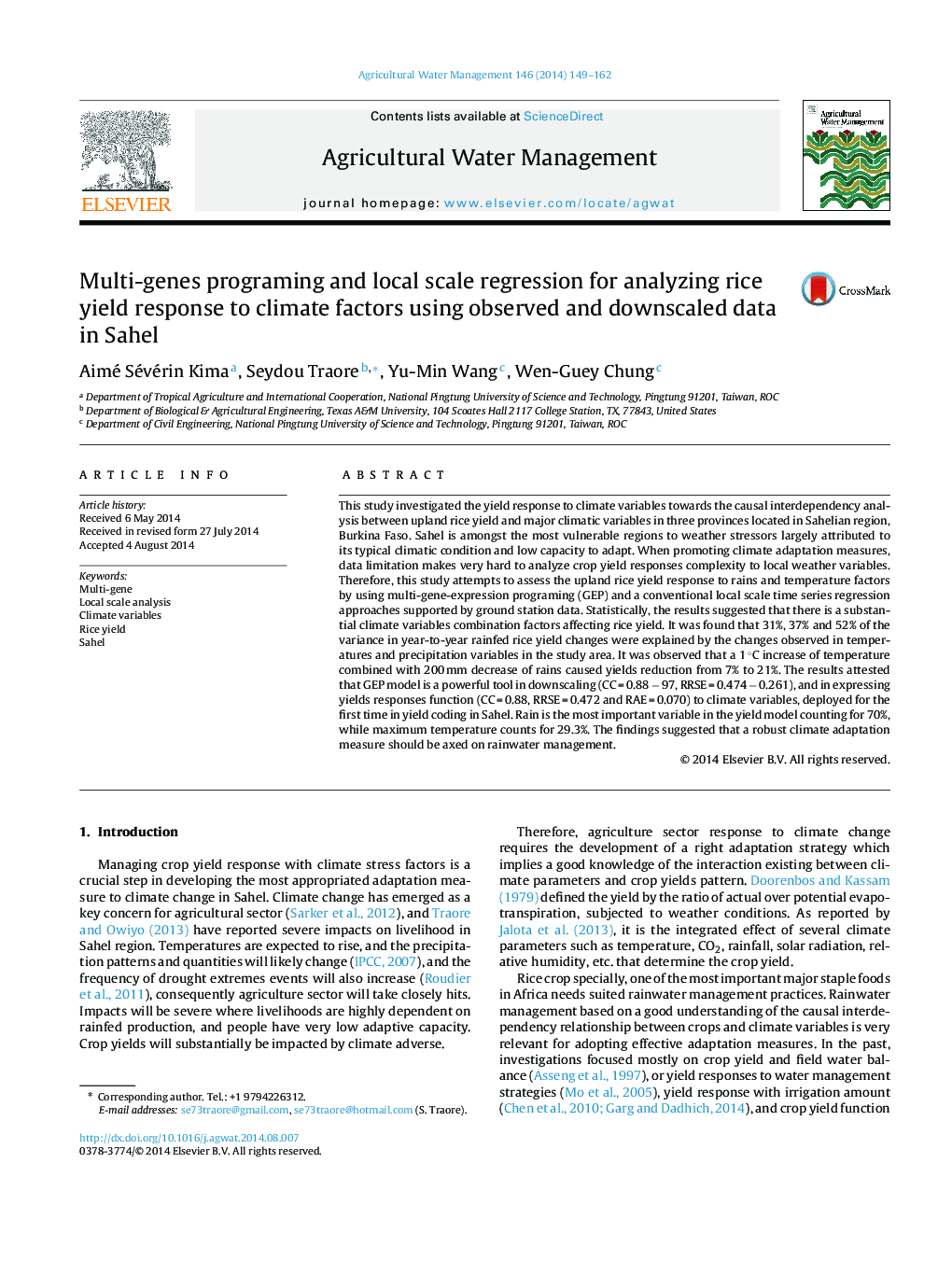| کد مقاله | کد نشریه | سال انتشار | مقاله انگلیسی | نسخه تمام متن |
|---|---|---|---|---|
| 6363948 | 1622933 | 2014 | 14 صفحه PDF | دانلود رایگان |
عنوان انگلیسی مقاله ISI
Multi-genes programing and local scale regression for analyzing rice yield response to climate factors using observed and downscaled data in Sahel
ترجمه فارسی عنوان
برنامه ریزی چند ژن و رگرسیون مقیاس محلی برای تحلیل پاسخ عملکرد برنج به عوامل اقلیمی با استفاده از داده های مشاهده شده و کمینه شده در ساحل
دانلود مقاله + سفارش ترجمه
دانلود مقاله ISI انگلیسی
رایگان برای ایرانیان
کلمات کلیدی
چندین ژن تجزیه و تحلیل مقیاس محلی، متغیرهای آب و هوا، عملکرد برنج، ساحل،
موضوعات مرتبط
علوم زیستی و بیوفناوری
علوم کشاورزی و بیولوژیک
علوم زراعت و اصلاح نباتات
چکیده انگلیسی
This study investigated the yield response to climate variables towards the causal interdependency analysis between upland rice yield and major climatic variables in three provinces located in Sahelian region, Burkina Faso. Sahel is amongst the most vulnerable regions to weather stressors largely attributed to its typical climatic condition and low capacity to adapt. When promoting climate adaptation measures, data limitation makes very hard to analyze crop yield responses complexity to local weather variables. Therefore, this study attempts to assess the upland rice yield response to rains and temperature factors by using multi-gene-expression programing (GEP) and a conventional local scale time series regression approaches supported by ground station data. Statistically, the results suggested that there is a substantial climate variables combination factors affecting rice yield. It was found that 31%, 37% and 52% of the variance in year-to-year rainfed rice yield changes were explained by the changes observed in temperatures and precipitation variables in the study area. It was observed that a 1 °C increase of temperature combined with 200 mm decrease of rains caused yields reduction from 7% to 21%. The results attested that GEP model is a powerful tool in downscaling (CC = 0.88 â 97, RRSE = 0.474 â 0.261), and in expressing yields responses function (CC = 0.88, RRSE = 0.472 and RAE = 0.070) to climate variables, deployed for the first time in yield coding in Sahel. Rain is the most important variable in the yield model counting for 70%, while maximum temperature counts for 29.3%. The findings suggested that a robust climate adaptation measure should be axed on rainwater management.
ناشر
Database: Elsevier - ScienceDirect (ساینس دایرکت)
Journal: Agricultural Water Management - Volume 146, December 2014, Pages 149-162
Journal: Agricultural Water Management - Volume 146, December 2014, Pages 149-162
نویسندگان
Aimé Sévérin Kima, Seydou Traore, Yu-Min Wang, Wen-Guey Chung,
